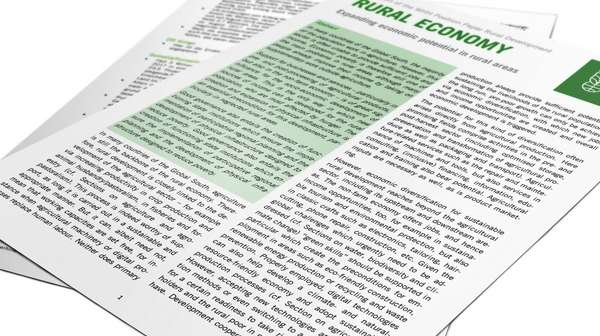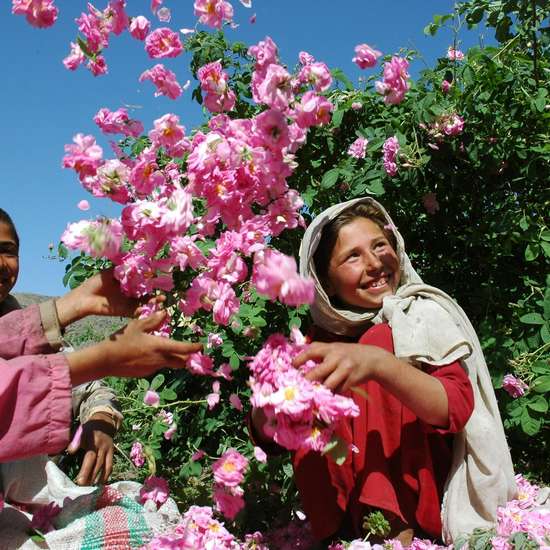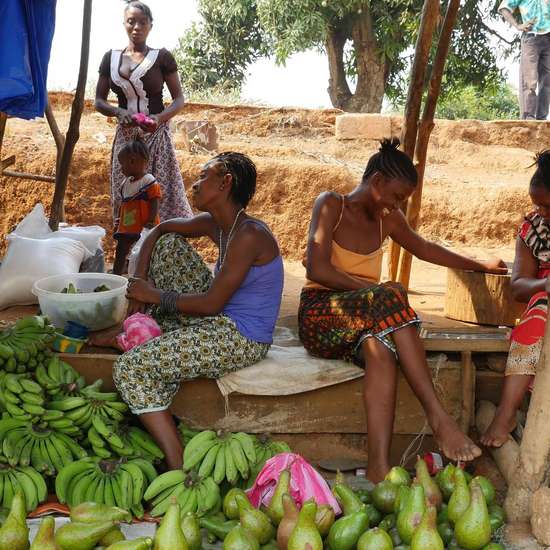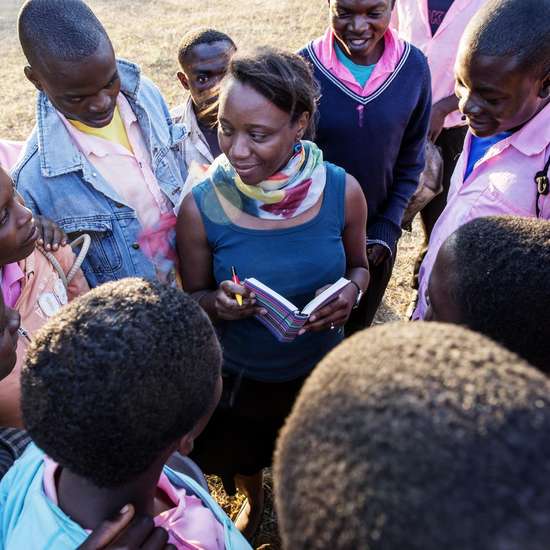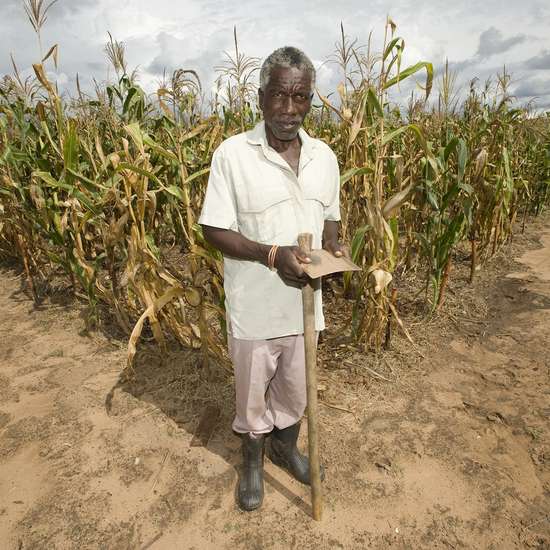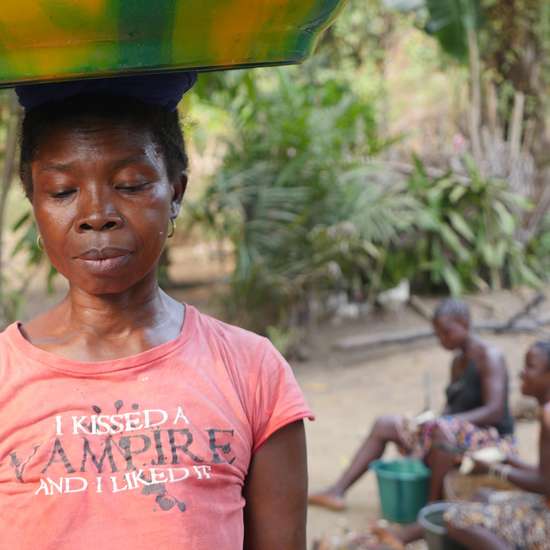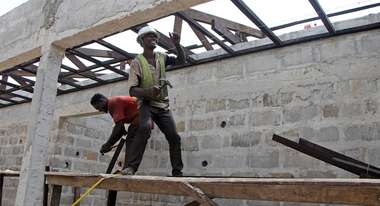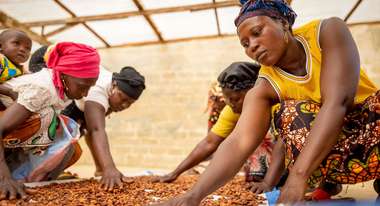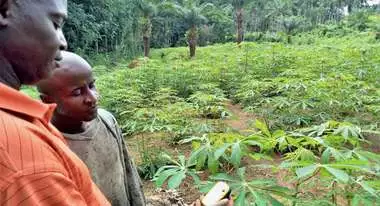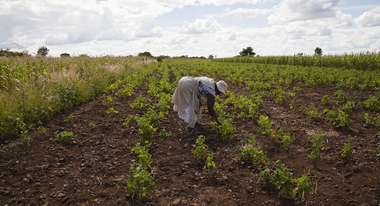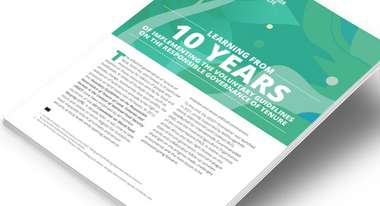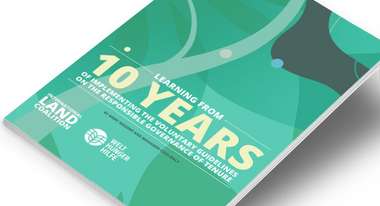The Position Paper on Rural Development sums up Welthungerhilfe’s programs and political approaches that aim to improve the conditions in which people in poor rural regions of the Global South live.
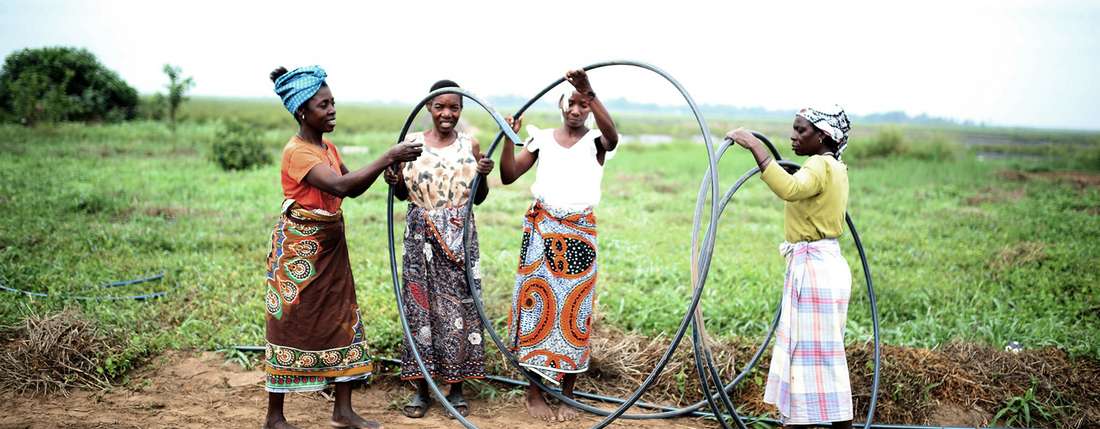
Agriculture and Natural Resource Management
Hunger and malnutrition are primarily caused by inequality in the global agricultural and food system. Many Welthungerhilfe (WHH) projects combine a focus on nutrition, agriculture and the environment.
Challenge
Hunger is most prevalent in remote regions of the world where people typically draw their food and livelihoods from the natural environment. High demand on the world market for food and agricultural raw products threatens the food and nutrition security of rural families, many of whom can no longer afford healthy meals. Long rains or droughts, provoked by climate change, exacerbate these challenges.
Many of the communities WHH works with are situated in ecologically and climatically vulnerable regions. For these people, diets, food systems and the use of natural resources are inextricably linked.
Our approach
Welthungerhilfe’s flagship approach for achieving nutritional security in these remote regions is called LANN+. This holistic and multi-sectoral approach seeks to empower rural families to achieve sustainable food and nutrition through training in agriculture, resource management, water, sanitation and hygiene (WASH), alternative income and nutrition.
Encompassed in this is our focus on sustainable and resilient agriculture, which supports smallholder farmers in cultivating higher-yield, more nutritious crops to fight hunger and poverty while saving natural resources. WHH programs are also designed to sustainably strengthen resilience to climate change effects by sharing knowledge on climate-adapted cultivation and harvesting methods with climate-resistance crops.
WHH empowers communities to help themselves on a long-term basis, by using market-based approaches that enable people to continue to earn a living from their agricultural products. To further protect the livelihoods of rural families, WHH helped develop the Food Security Standard project. This ensures their right to food is not violated by the international demand and trade for agricultural commodities.
Our impact
WHH has installed solar stations in remote regions of Northern Iraq, where many people have returned home to after years of conflict. This energy solution has assisted 14,000 residents to improve the sustainability of their agricultural livelihoods.
By providing agricultural education for women in Mali, WHH is helping secure food supply and income in the face of political crisis and drought. The project is directly improving the lives of approximately 9,000 people while the rest of the communities’ 250,000 residents will benefit long term from the nutrient-rich crops and economic knowledge.




